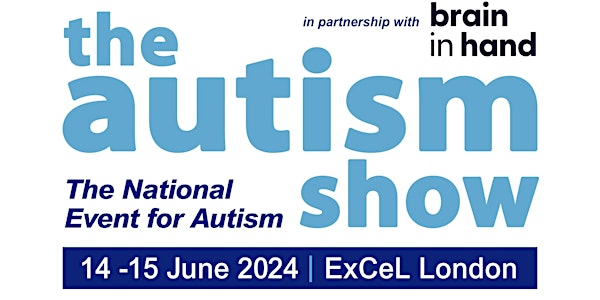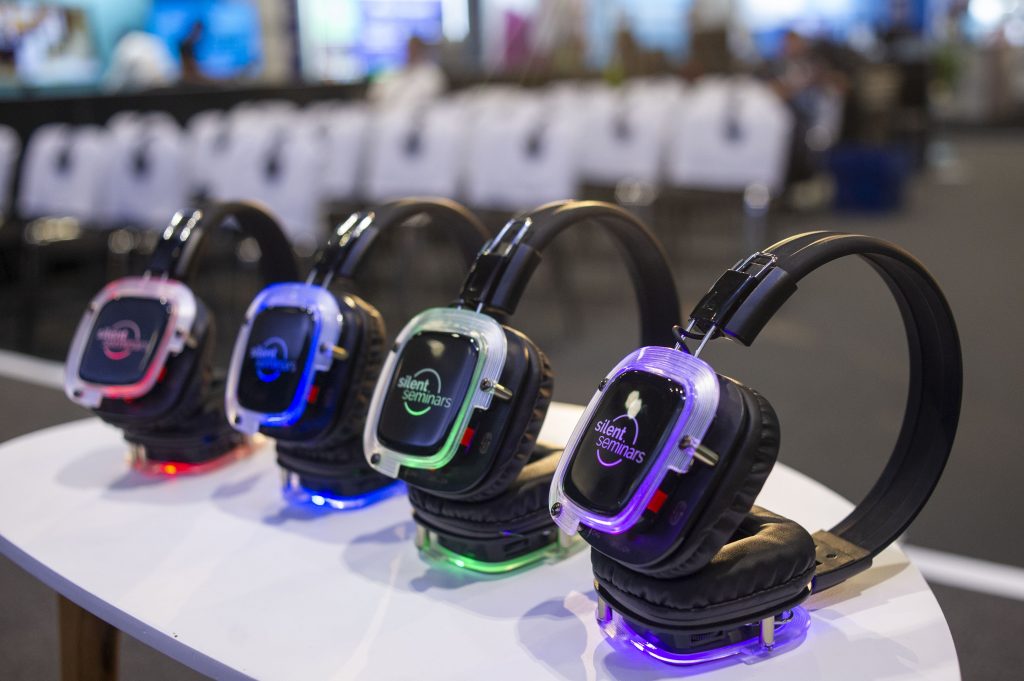Last weekend marked my first time attending The Autism Show, a national exhibition for and about autism, associated with the National Autistic Society and in partnership with Brain in Hand. I wasn’t sure what to expect, aside from having visited ExCel London once before. I booked my ticket in my capacity as an educator, working with multiple autistic children in alternative provision. But I am also fascinated to learn more about the neurodevelopmental condition, as a late-realised autistic person myself. There is so much I don’t know about how my own brain processes the world, so learning more about it is helpful to me and to the children I teach.

I have visited ExCel London once before, but it wasn’t a positive sensory experience, I have to be honest! I prepared as well as I could for The Autism Show – my little backpack was well-stuffed. Headphones, loop earplugs, fidget toys, water bottle, safe food snacks, book for the train. Cavernous exhibition spaces aren’t designed with sensory needs in mind, but this event was so well thought out to reduce stimulation where possible. I’m not used to this being a consideration, so it was a really pleasant surprise.
On arrival, I showed my ticket to get a wristband for entry. The staff member who checked my ticket, asked me how tight I wanted my wristband (the kind that has a sticky part at one end, making it adjustable to fit everyone) and I was so surprised that it took me a hot minute to answer! But instead of rushing me and hurrying my answer, the lady explained that she preferred to have hers tight so that it didn’t catch on anything, whereas she’d done several for people who wanted them really loose so they couldn’t feel it against their skin constantly. The additional layer of explanation would be superfluous to most people, but I quickly realised that attendees of this exhibition were not “most people”.
Everywhere I looked, I could see people like me to varying degrees. It was an event for high and low support needs alike, with no judgement for things taking a little longer for some – I noticed this especially at a coffee shop stand, where the pressure was off to do things quickly and be out of the way for the next person. It doesn’t sound like a lot, and maybe that’s just my overactive nervous streak, but it contributed to the overall positive experience. I wore my headphones throughout the day and saw other people doing the same. Sitting for talks, there were numerous people occupying their hands with fidget toys – I can’t explain how lovely this feels as someone who likes to do the same, but is usually the only one in the room!
It was an immensely disability-positive space. The world as a whole is not like that, so it was quite overwhelming at times! The exhibition was full of organisations whose very existence is based around supporting autistic and neurodivergent people. [See resource list a the end of this post.]

The biggest change I noticed from a traditional exhibition/conference was the delivery of talks throughout the day. The Autism Show used the ‘Silent Seminars’ system (you may have noticed in the photo further up the post, people all wearing similar headphones during a talk.) I have never come across this system before, but it was incredible, eliminating the need for booming speakers competing with each other for attention in a space where most people struggle to focus in some capacity! The headphones were linked to a specific ‘theatre’ and relayed the speaker directly to your ears in real-time, at a volume you could adjust personally while lots of background noise was filtered out.

The speakers I heard that day were inspiring and affirming. They were exactly what I needed to hear, and I’m guessing that feeling was shared by many others in the room from the reactions to the talks I attended. Promoting our skills alongside recognising our difficulties, celebrating the intensity of joy that comes from special interests, considering adaptations in the workplace and how our journey to where we want to be might look a little different. How incredible it was, to be in a room full of people celebrating the fact that “disabled is not a dirty word“!
I didn’t leave the show with any groundbreaking new knowledge that’s going to revolutionise my educational practice. But what I did gain from it was a renewed sense of worth in my authentic, autistic self.
Resource list
